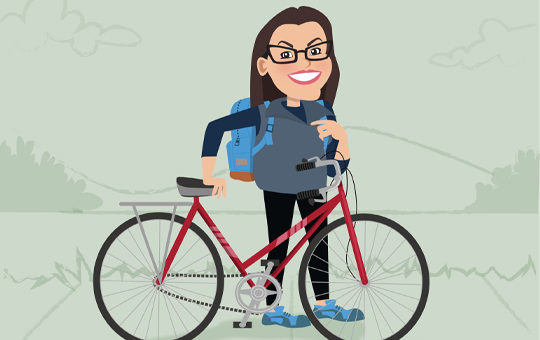
Maria
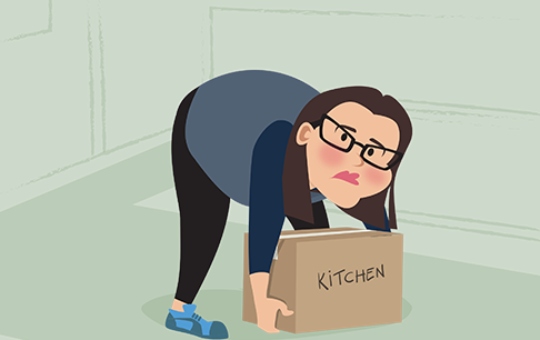
Maria is a university student who has a casual job at the local grocery store. While moving into her new flat, Maria lifted a heavy box on her own. As she bent over to put the box down, she immediately felt a ‘pop’ in her back and pain running down her left leg.
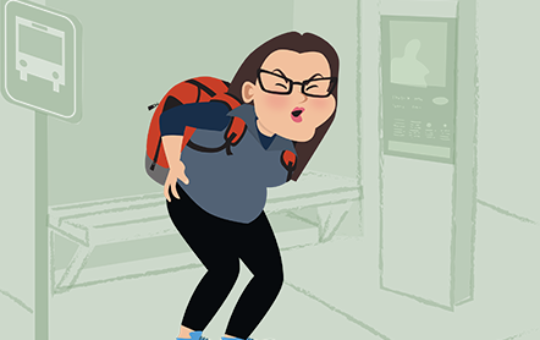
For several weeks since her injury, Maria has had pain down her left leg. As the symptoms increase through the day, she finds it difficult to sit or stand for long periods. Her symptoms also make it difficult to walk around the university campus where she studies.
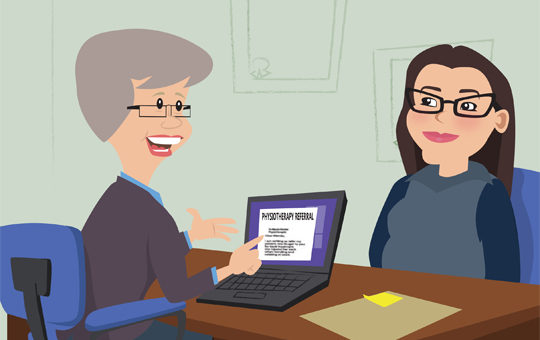
Maria visits her GP for advice. Her GP explains that no investigations are required, as generally, acute back and leg symptoms settle with time. However, she refers Maria for physiotherapy.
Maria attends regular physiotherapy sessions. However, Maria’s physiotherapist recommends to her GP that Maria be reviewed by a spine surgeon as her leg symptoms have persisted more than three months and are impacting her ability to attend university.
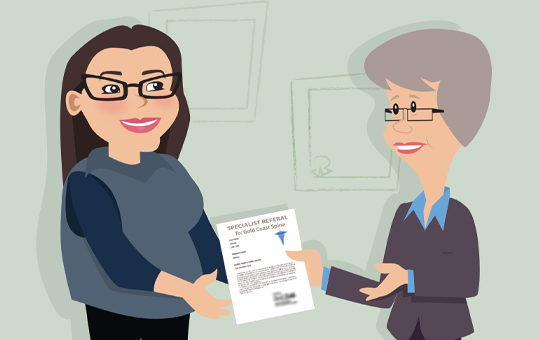
Maria returns to her GP, who gives her a specialist referral.

Maria speaks with one of our Patient Co-ordinators who has her complete some forms and about herself and her condition.
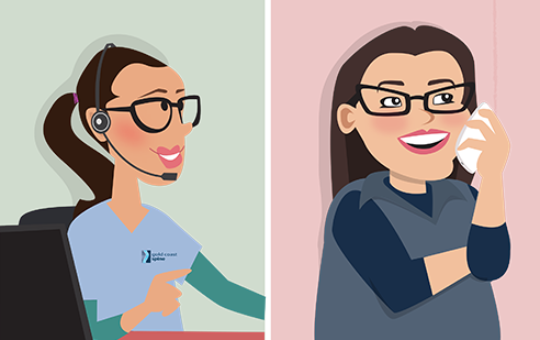
Gold Coast Spine’s nurse calls Maria to conduct a Nurse Health Check, taking a detailed history relevant to her spine health.
Our Patient Co-ordinators then book Maria’s appointment with a surgeon at Gold Coast Spine. Dr Scott-Young reviews Maria’s information and refers her for an EMG and an MRI scan.
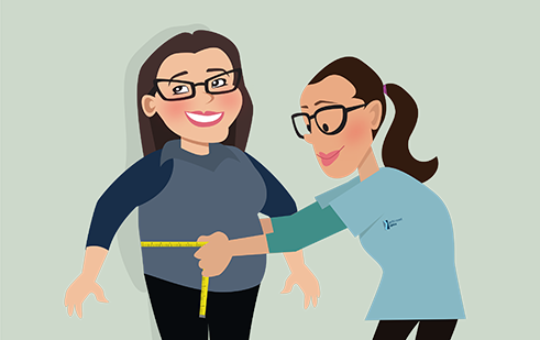
On the day of her appointment with Dr Scott-Young, the nurse checks in again with Maria, taking her measurements and updating any information since the Nurse Health Check.
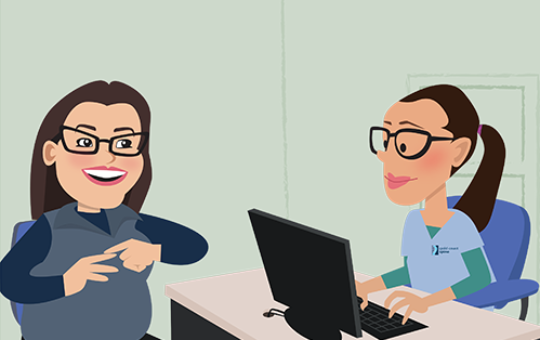
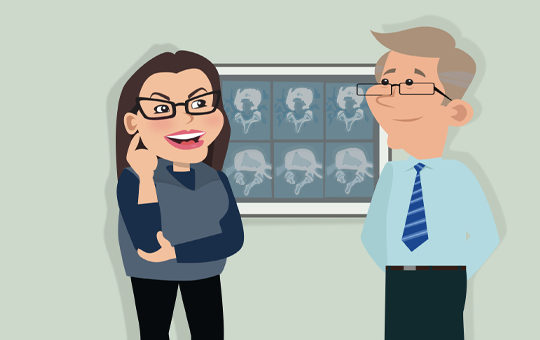
Maria attends her first appointment with Dr Scott-Young. He listens to the history of her condition, examines Maria and reviews her radiology. Maria noted her symptoms began to improve prior to her appointment. Dr Scott-Young discusses his thoughts about Maria’s symptoms, answers her questions and discusses a treatment plan with her.
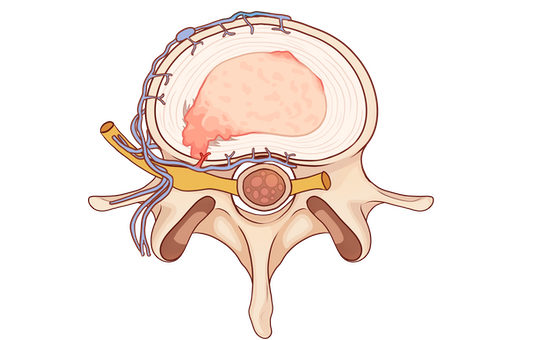
Dr Scott-Young tells Maria that she has a L4-5 disc prolapse. He explains her condition doesn’t need surgical intervention and that the natural history of her condition is good. He explains that simple measures like weight loss and increasing her fitness is the best medicine. Dr Scott-Young stresses that Maria needs a lifelong commitment to her physical well being to ensure that her spine stays strong. He recommends a short physiotherapist-guided rehabilitation programme with the goal of Maria later taking charge of her own recovery from the injury.
At the end of the appointment, Maria is given a referral to a physiotherapist who will work with her to achieve her goals.
A detailed letter outlining the surgeon’s recommendations goes to Maria’s GP and the physiotherapist.
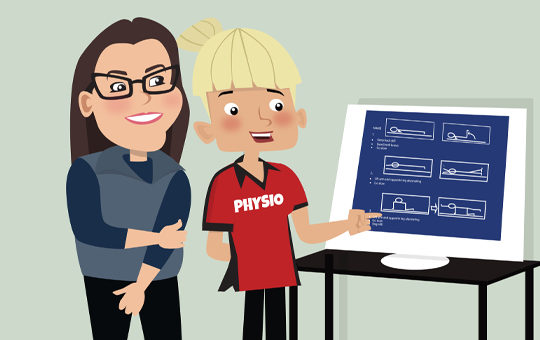
Maria begins her treatment plan by attending the physiotherapy sessions. Her physiotherapist gives her an exercise program she can do at home and resources she can access to learn more about healthy eating plans.
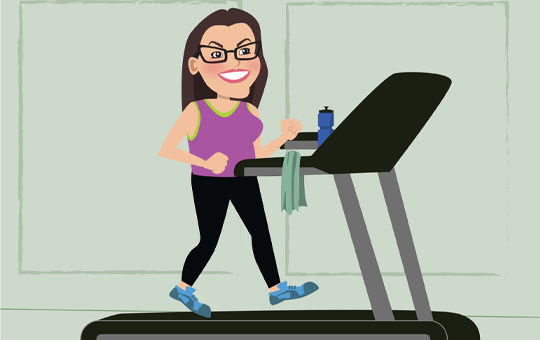
Maria completes her physiotherapy sessions and continues her exercise and healthy eating plan. She notices an improvement in her symptoms and finds it much easier to focus on her studies. Her leg pain goes away and she finds her back only aches now and then when she’s tired.
